
“You must accept the truth from whatever source it comes." Maimonides
Brands: https://t.co/uVyav8rqqm
Geopolitics / Science / AI
36 subscribers
How to get URL link on X (Twitter) App


 2/4: Bitcoin’s latest decline has revived a familiar claim: that it could ultimately go to zero. The statement is often dismissed as alarmist or ideological, but it persists because it is not really a price prediction. It is a structural argument. When Bitcoin falls, the question that surfaces is not how far it might drop, but what, exactly, it is supposed to be worth in the first place.
2/4: Bitcoin’s latest decline has revived a familiar claim: that it could ultimately go to zero. The statement is often dismissed as alarmist or ideological, but it persists because it is not really a price prediction. It is a structural argument. When Bitcoin falls, the question that surfaces is not how far it might drop, but what, exactly, it is supposed to be worth in the first place.
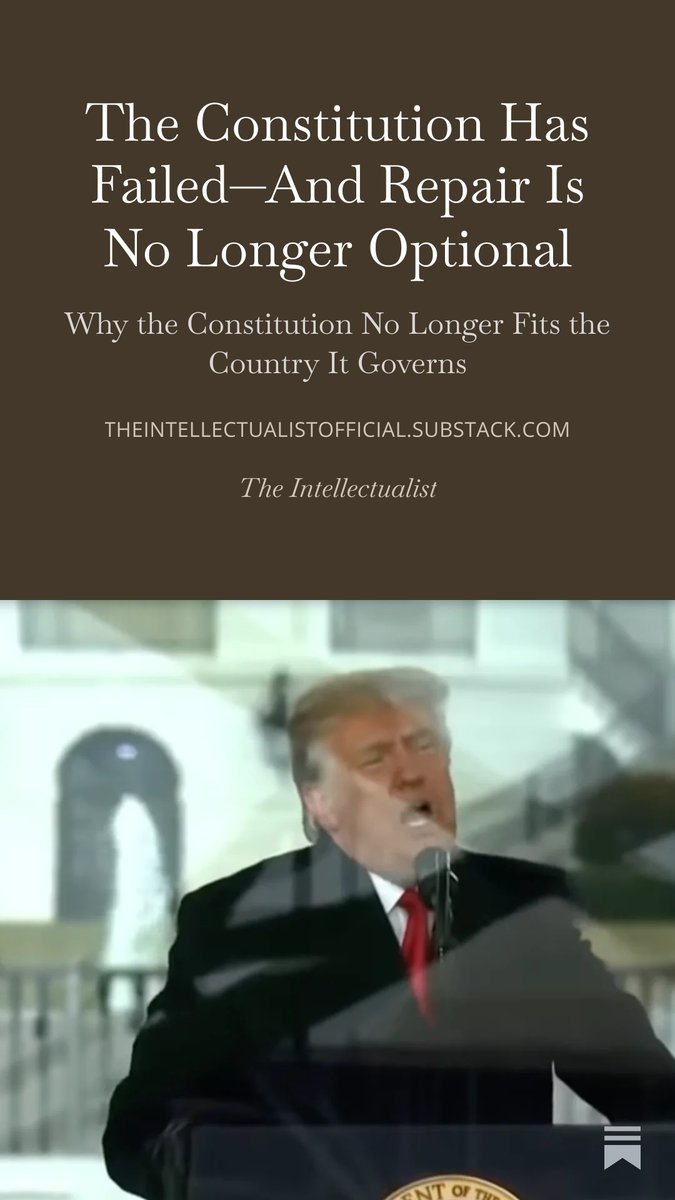
 2/8: Every constitutional order eventually reaches a point at which its inherited architecture can no longer carry the load placed upon it.
2/8: Every constitutional order eventually reaches a point at which its inherited architecture can no longer carry the load placed upon it. 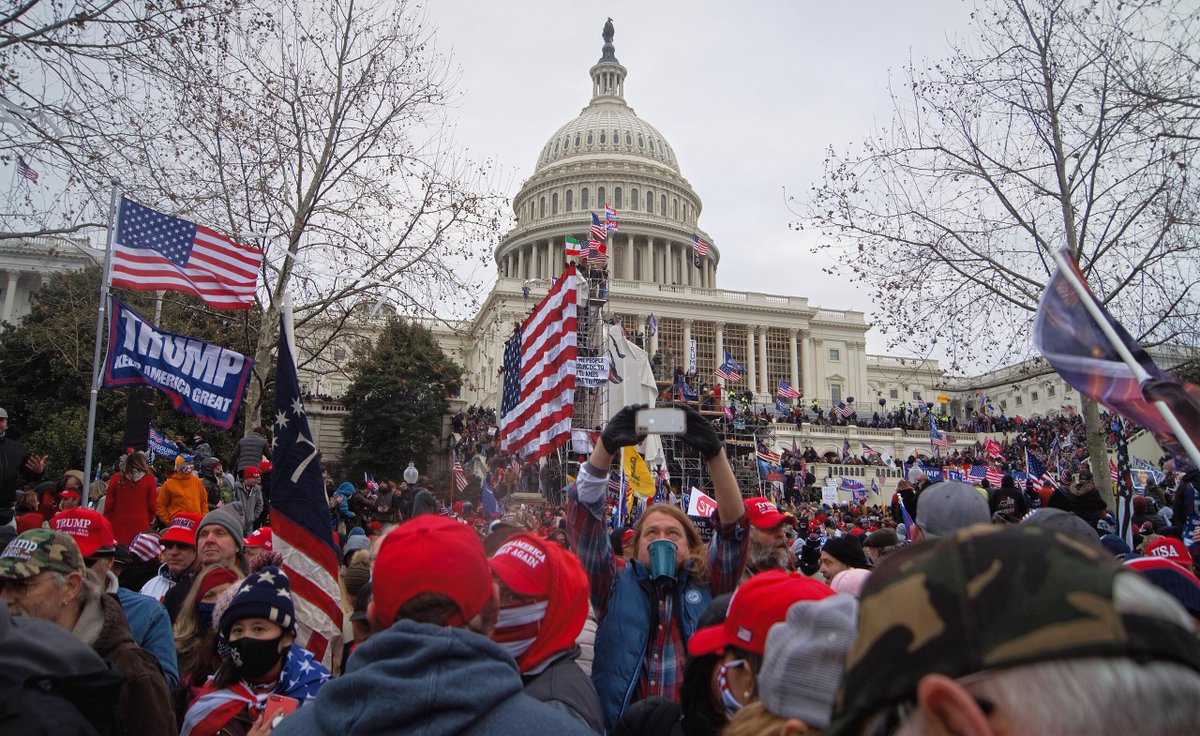
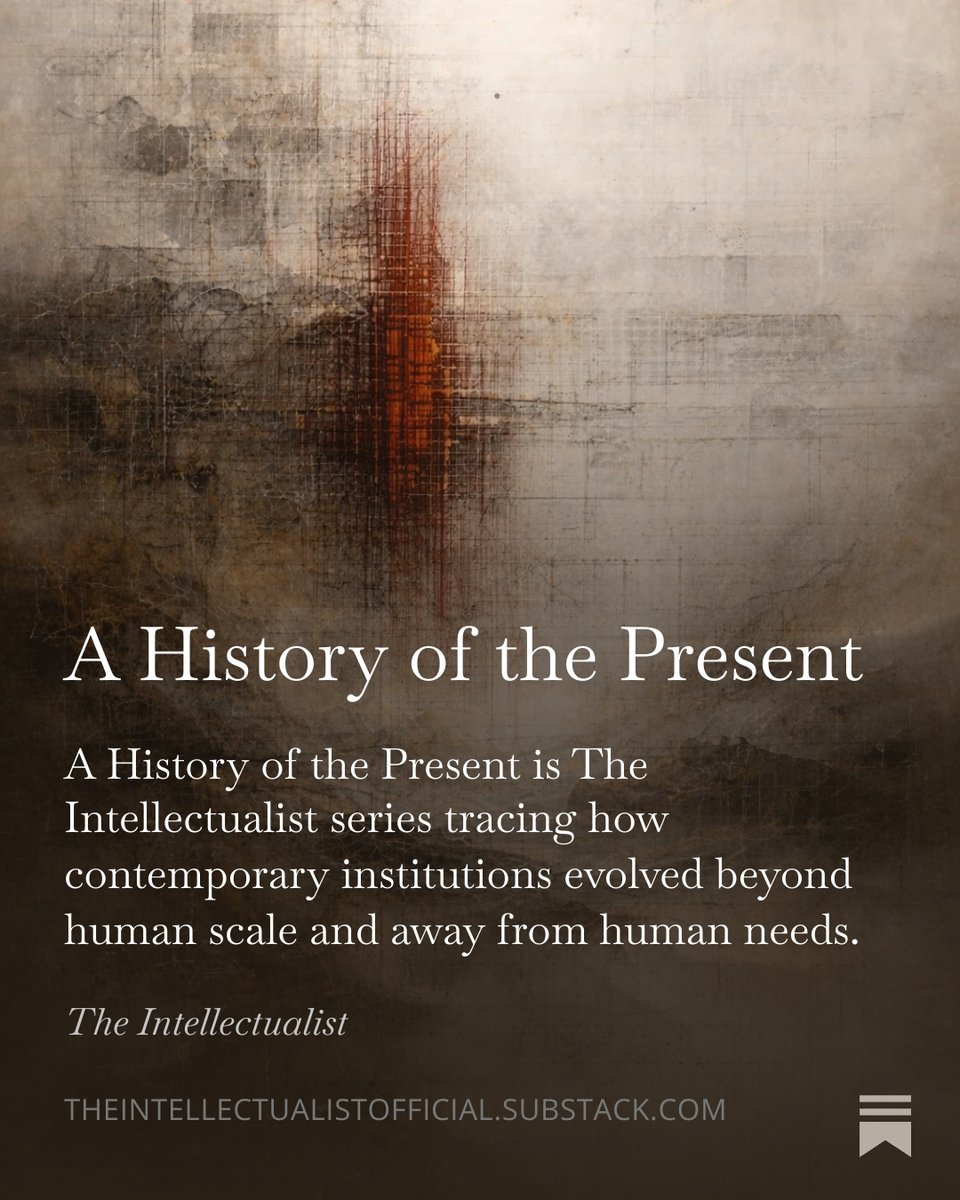
 2/6: It has become common to describe the present as a moment of crisis. The word appears everywhere—attached to democracy, climate, technology, and war—until it begins to lose its force. What distinguishes this moment is not simply the number of problems we face, but the way so many of them appear to be failing at once.
2/6: It has become common to describe the present as a moment of crisis. The word appears everywhere—attached to democracy, climate, technology, and war—until it begins to lose its force. What distinguishes this moment is not simply the number of problems we face, but the way so many of them appear to be failing at once.
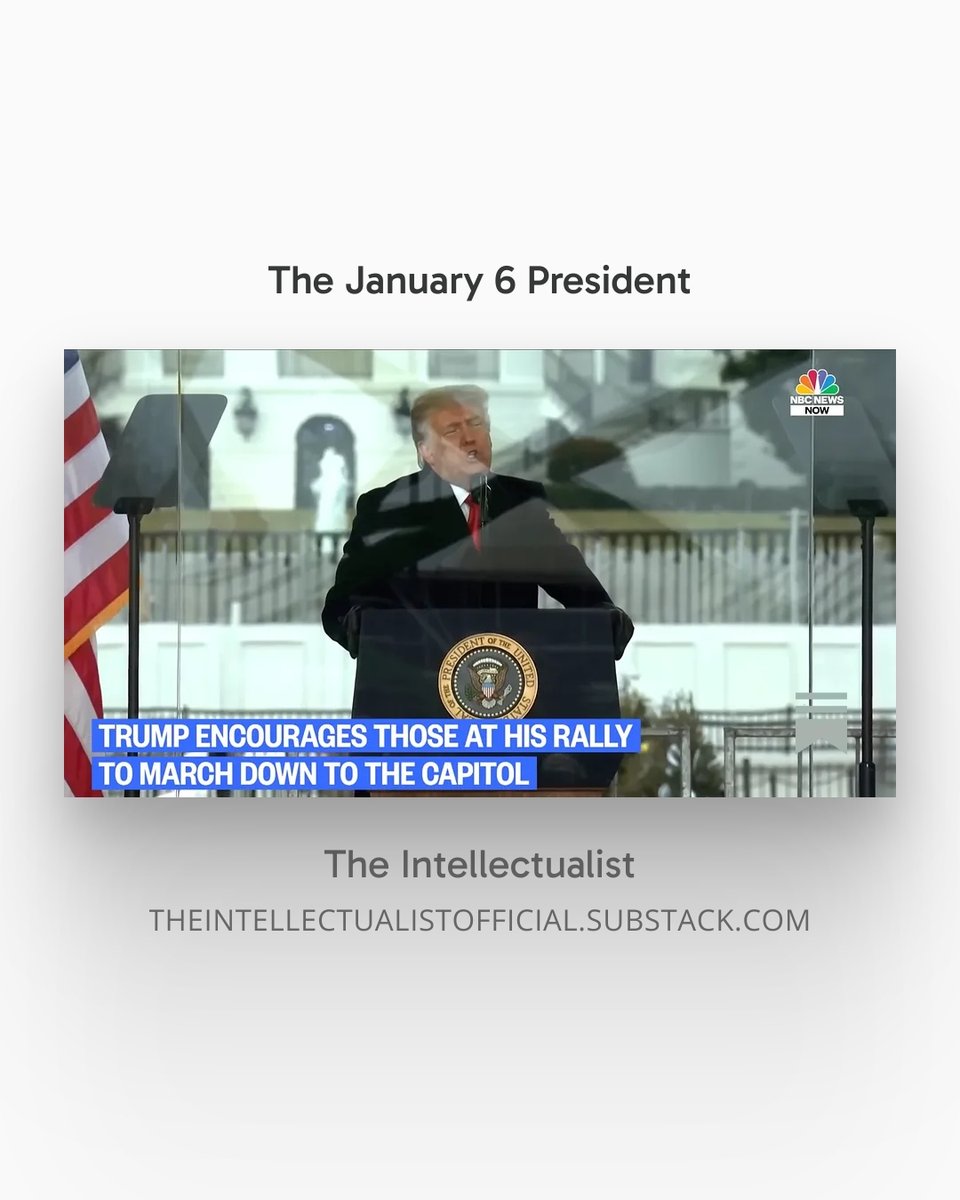
 2/6: It was the day a sitting president, having lost an election and failed in court, turned against the constitutional order itself. Five years later, the most unsettling fact is not that it happened. It is that the man who caused it was never decisively stopped—and must now be understood by what he tried to destroy.
2/6: It was the day a sitting president, having lost an election and failed in court, turned against the constitutional order itself. Five years later, the most unsettling fact is not that it happened. It is that the man who caused it was never decisively stopped—and must now be understood by what he tried to destroy.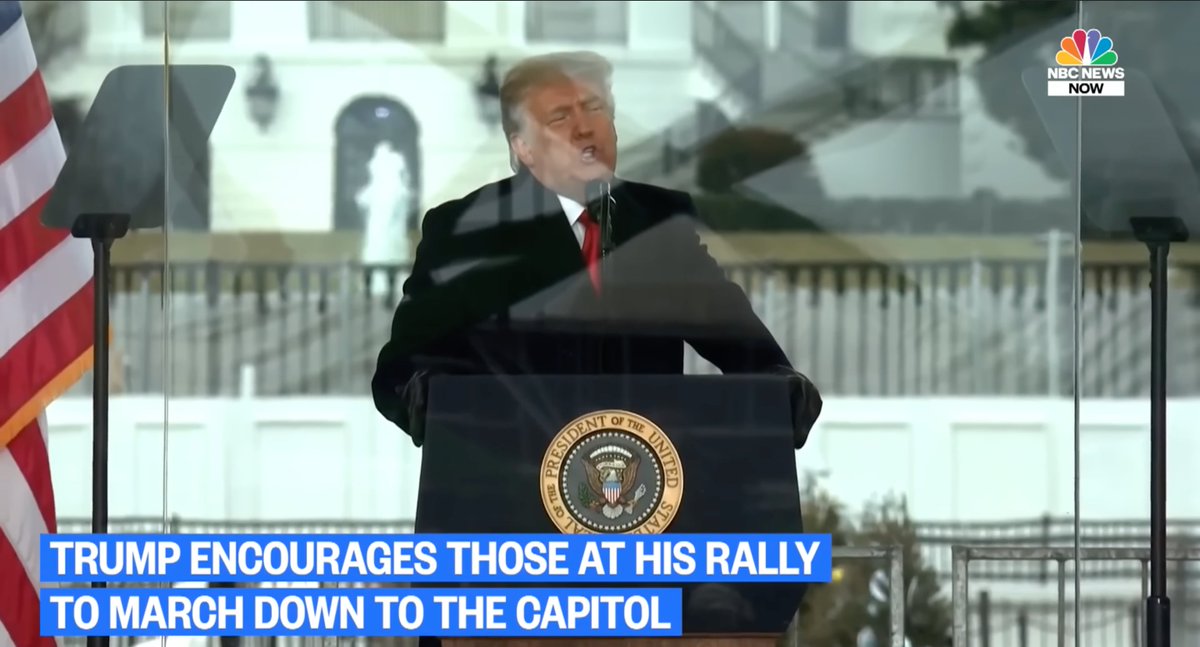

 2/7: When President Donald Trump posted on Truth Social images purporting to show Venezuela’s president, Nicolás Maduro, in U.S. custody—eyes and ears covered, the scene framed as a completed capture—they functioned less as information than as proof. They did not explain a process, establish jurisdiction, or argue a case. They presented domination as already accomplished.
2/7: When President Donald Trump posted on Truth Social images purporting to show Venezuela’s president, Nicolás Maduro, in U.S. custody—eyes and ears covered, the scene framed as a completed capture—they functioned less as information than as proof. They did not explain a process, establish jurisdiction, or argue a case. They presented domination as already accomplished.
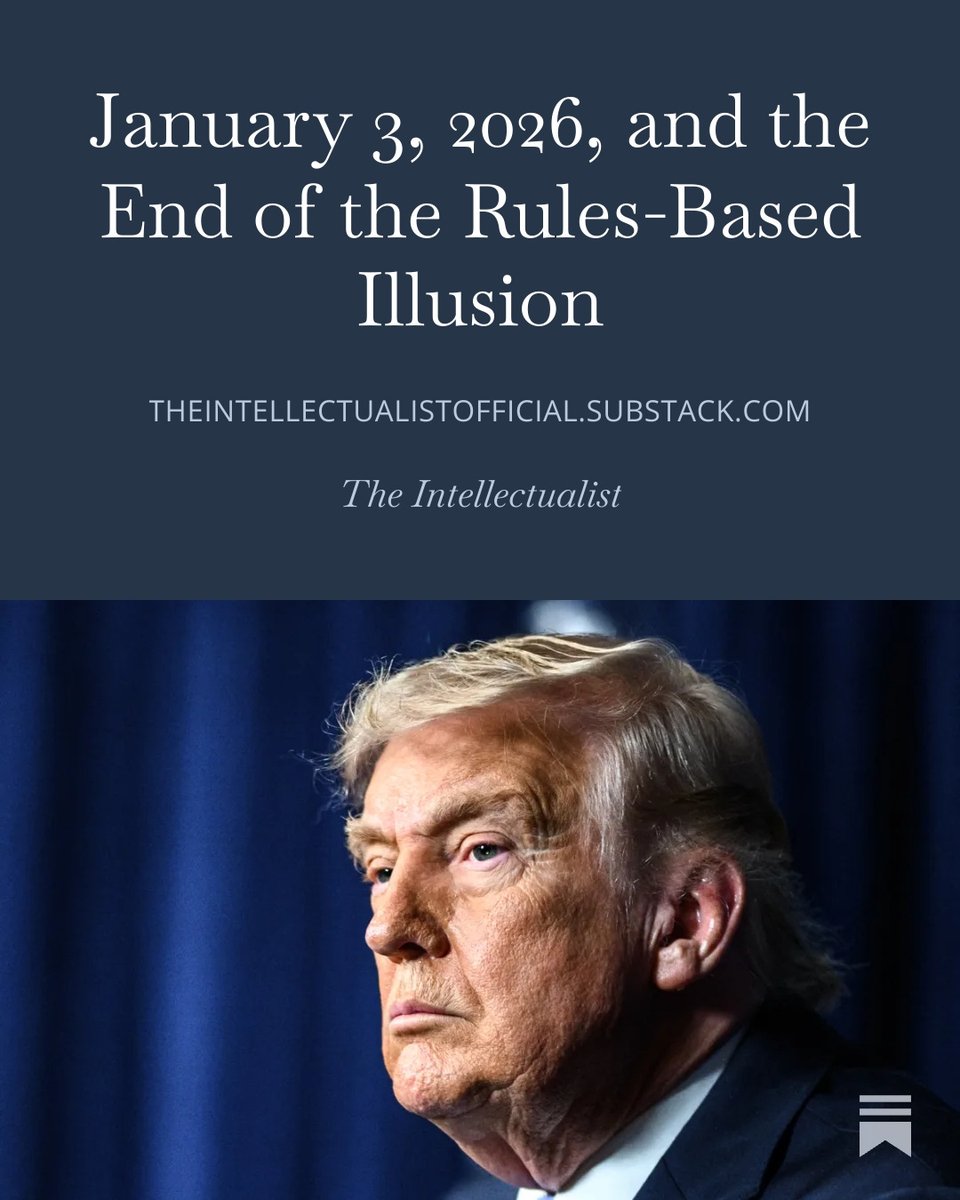
 2/4: This morning, January 3, 2026, the world became more dangerous—and less governed by the rule of law.
2/4: This morning, January 3, 2026, the world became more dangerous—and less governed by the rule of law.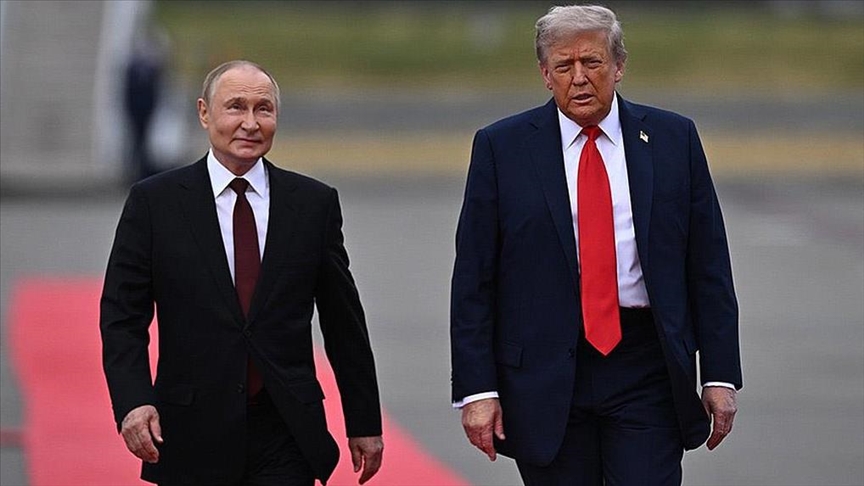

 2/4: This guidance did not come from Moscow’s political operatives. It came from a U.S. envoy—advice that helped an adversary prepare for a conversation with the American president at a moment when Ukraine depended on U.S. backing for its survival.
2/4: This guidance did not come from Moscow’s political operatives. It came from a U.S. envoy—advice that helped an adversary prepare for a conversation with the American president at a moment when Ukraine depended on U.S. backing for its survival.

 2/5: Trump frames it as a national honor, but his long record of false claims about 9/11 raises fears of politicization. Local leaders argue the memorial belongs to those who endured the attacks, not to Washington. At stake is whether Ground Zero remains a covenant of memory or becomes a conquest of narrative.
2/5: Trump frames it as a national honor, but his long record of false claims about 9/11 raises fears of politicization. Local leaders argue the memorial belongs to those who endured the attacks, not to Washington. At stake is whether Ground Zero remains a covenant of memory or becomes a conquest of narrative.

 I. The Analogy That Distorts
I. The Analogy That Distorts

 SNAP Isn’t a Bonus — It’s the Business Model
SNAP Isn’t a Bonus — It’s the Business Model
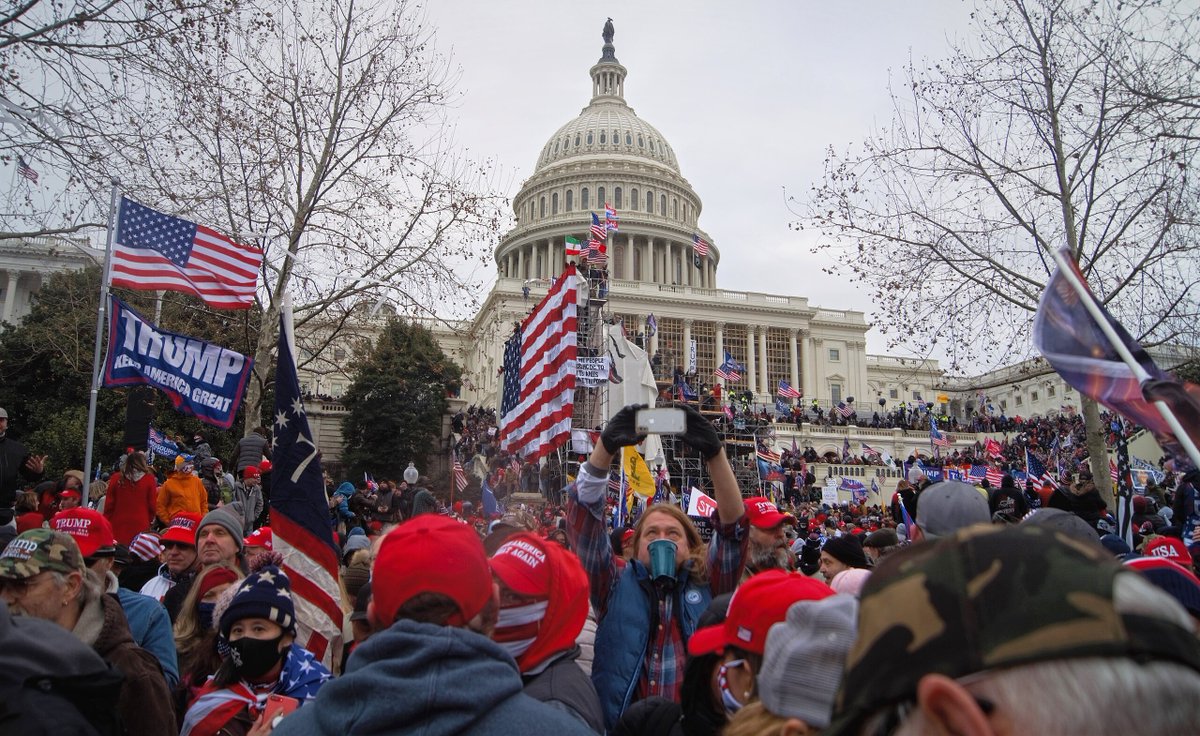
 A Democracy Built on Exclusion
A Democracy Built on Exclusion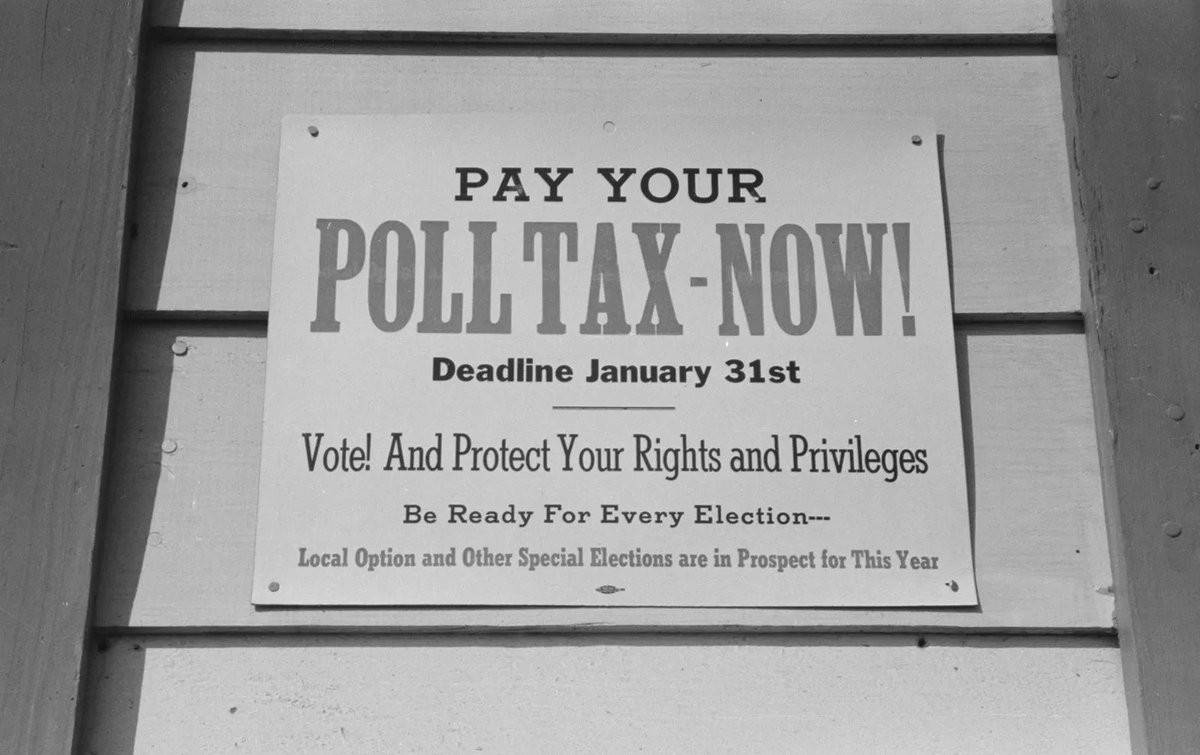
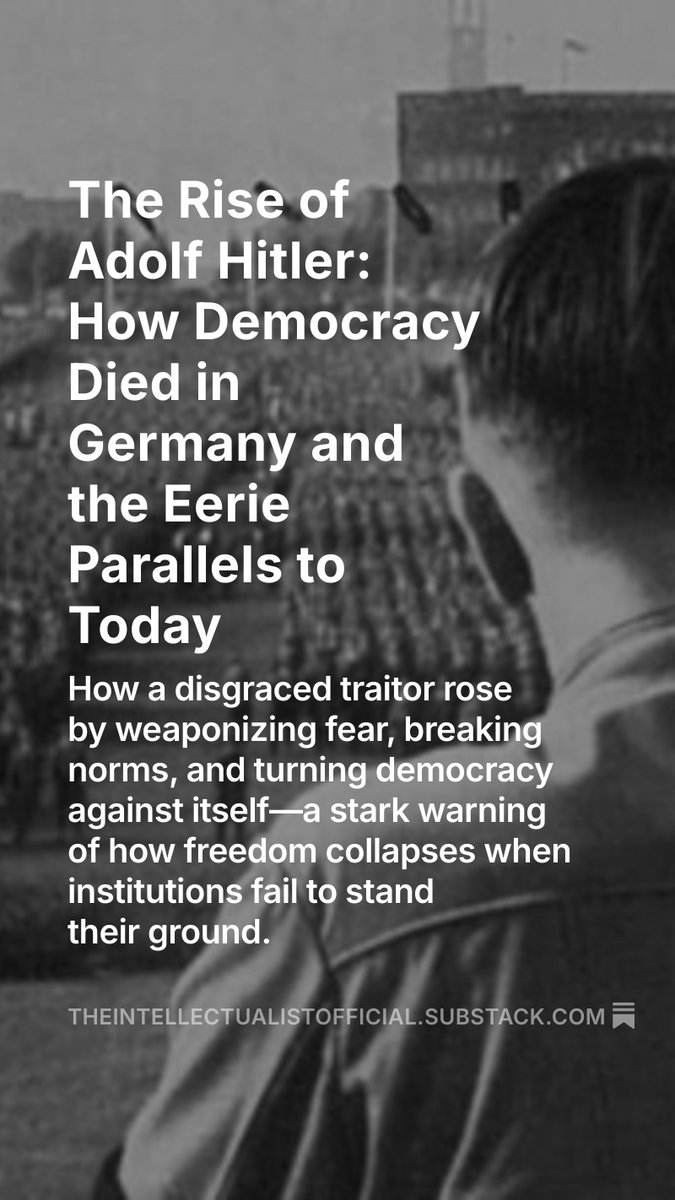
 2/11: At first, they dismissed him. The elites, the media, the political class—they thought they could control him. They mocked him as a sideshow, a foolish provocateur, destined to be forgotten.
2/11: At first, they dismissed him. The elites, the media, the political class—they thought they could control him. They mocked him as a sideshow, a foolish provocateur, destined to be forgotten. 

 Epstein Client List Demands
Epstein Client List Demands

 How the System Failed to Stop Him
How the System Failed to Stop Him

 2/11: At first, they dismissed him. The elites, the media, the political class—they thought they could control him. They mocked him as a sideshow, a foolish provocateur, destined to be forgotten.
2/11: At first, they dismissed him. The elites, the media, the political class—they thought they could control him. They mocked him as a sideshow, a foolish provocateur, destined to be forgotten. 

 The Rubicon Was Crossed—And Nothing Stopped It
The Rubicon Was Crossed—And Nothing Stopped It

 Doctrine of Destruction: Trump’s Economic Endgame
Doctrine of Destruction: Trump’s Economic Endgame

 Navarro’s Pitch: A Massive Tax Shift Without a Vote
Navarro’s Pitch: A Massive Tax Shift Without a Vote

 The Proposal
The Proposal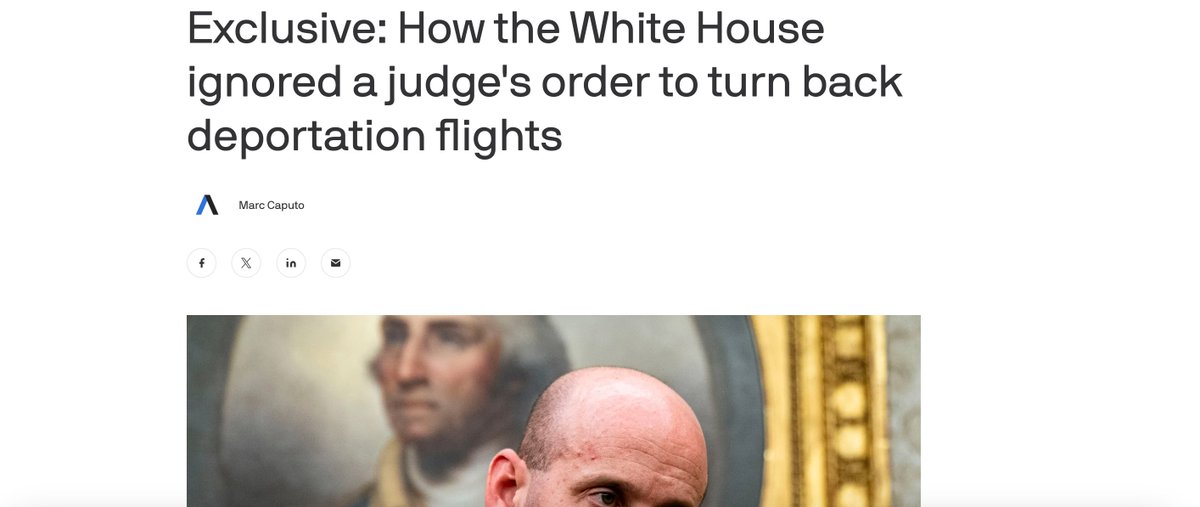

 Not Criminals—Targets of Vulnerability
Not Criminals—Targets of Vulnerability

 2/13: At first, they dismissed him. The elites, the media, the political class—they thought they could control him. They mocked him as a sideshow, a foolish provocateur, destined to be forgotten.
2/13: At first, they dismissed him. The elites, the media, the political class—they thought they could control him. They mocked him as a sideshow, a foolish provocateur, destined to be forgotten. 